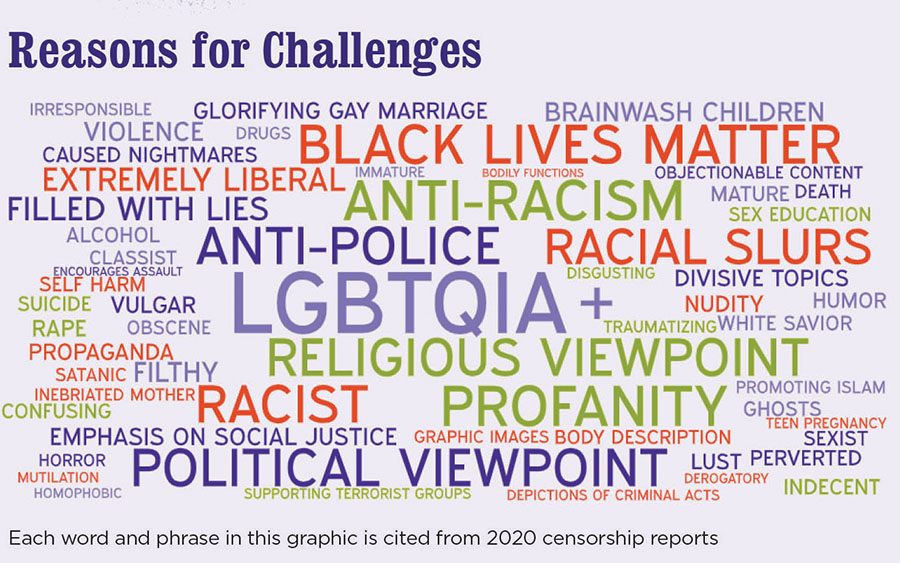Book banning is becoming more common
May 2, 2023
Every day there seems to be some headline about a school district that wants to ban books from library shelves. Who are the people that want to take well-known and critically acclaimed books out of the library and why are they doing it?
For centuries, books have always been a concern for varied reasons. Some being religious, political and cultural. It varies between time periods but has about the same affect today as it did in the past. It goes as far back as the 1500s, when church authorities despised the New Testament so much that they made bonfires out of the pages. Or to today, where people still demand the removal of the Harry Potter series due to J.K. Rowling’s antitransgender remarks.
In Phil Kerby’s book, “Free Speech for Me — But Not Thee” says, “The lust to suppress can come from any direction.” According to the Anti-Defamation League, “challenging” a book means that any person, group or institution is attempting to remove or restrict access to a book, where they object to the contents, ideas and themes.
The people who feel strongly about the content and would like to ban the materials teeter between parents to legislators who are trying to gain control over “inappropriate” and “offensive” books that could harm the younger generation. So, where exactly does banning come into play?
Banning is the complete removal of reading material. Many of the big reasons why people feel the need to ban or challenge books are for three reasons. They believe materials are sexually explicit, the material contains offensive language and that the material is not suitable for a particular age group, primarily children.
When censoring is involved with “inappropriate” materials, adults are quick to intervene when it comes to children. Children are the main concern with censoring or banning reading material. Typically, these are books that may contain swearing or a book that explains racism. States like Texas and Florida, the strictest states on cracking down on book censorship, are attempting to prevent kids from reading those types of books.
It is why you hear on the news that elementary students are not able to read books about gender identity like the book “Gender Queer,” a memoir by Maia Kobabe. The story is a personal identity journey for Kobabe, where they try to discover their sexuality and gender identity. That book was No. 1 on the Top 10 List of Banned Books of 2022.
So who has the right to prevent children from reading “inappropriate” material? According to Access to Library Resources and Services for Minors, an interpretation of the Library Bill of Rights states that, “Librarians and governing bodies should maintain that parents—and only parents—have the right and the responsibility to restrict the access of … only their children.”
Giving Compass, wrote an article about how in 2020, a Pennsylvania school board voted to ban an extensive list of books and materials related to social justice and race. Some of the materials contained information about Rosa Parks, Martin Luther King Jr. and the autobiography of the activist Malala Yousafzai. All are influential figures in the fight for racial equality and social justice.
The ban was eventually lifted, but it was a symbol of the ongoing crusade to dictate how primary and secondary educators and students address the issue of racism and history. Now, over 27 states have proposed or enacted bans on teaching critical race theory to students.
By restricting information on racism and basic history involving the atrocities of slavery and history that has been repeated, it allows for ignorance in the population, as well as the kids. It is stomping on one of the First Amendment rights, which is the freedom of speech.
Books and materials should be like “both mirrors and windows … to help young people see themselves and feel valued … and opportunities to learn about the experiences of people who are different,” the Anti-Defamation League said perfectly.































